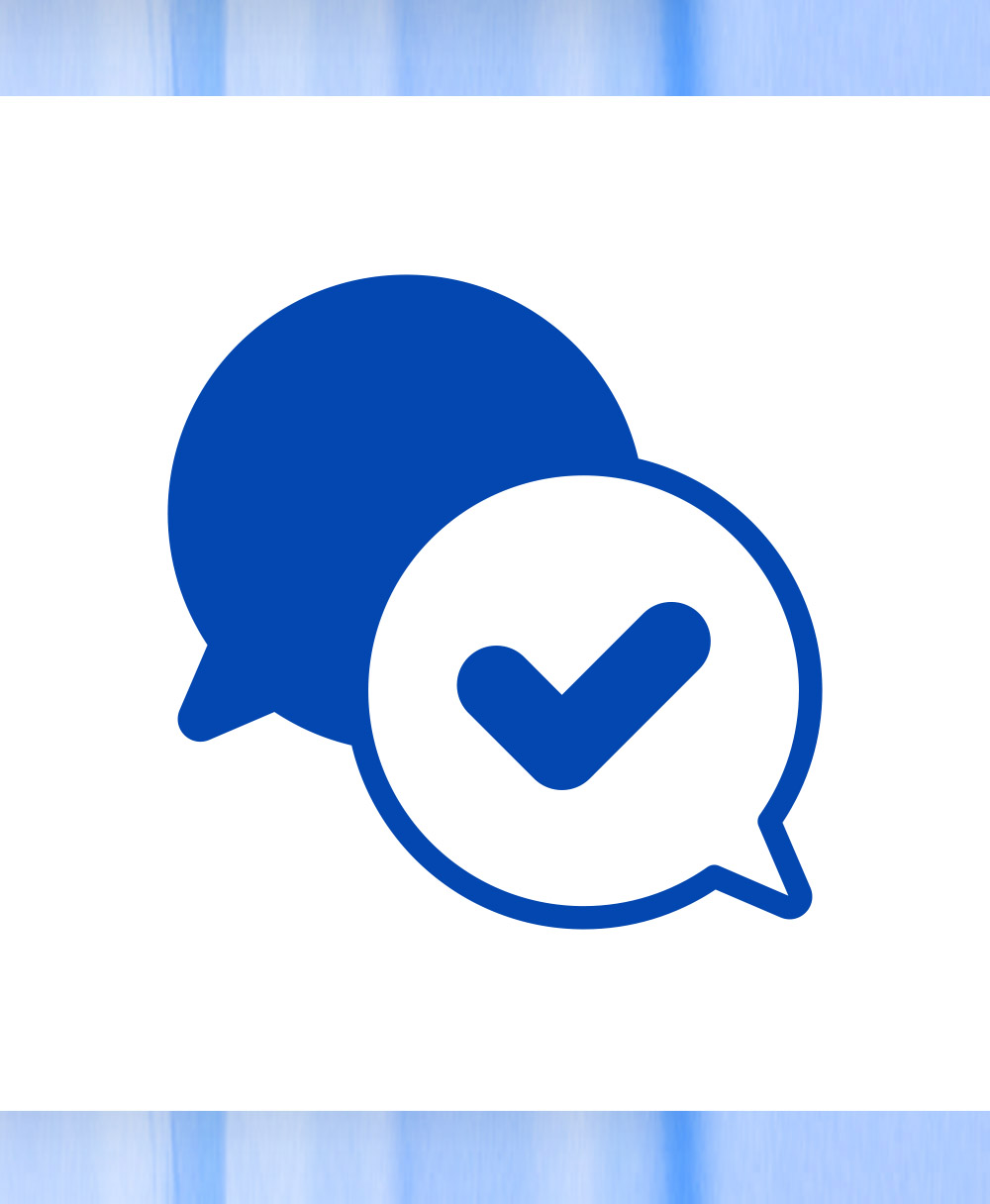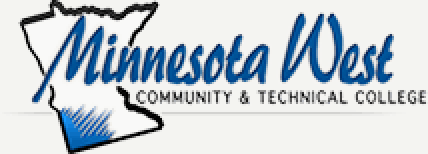Accessibility and Disability Services
What are academic accommodations?
Arrangements that give students with disabilities an equal opportunity to participate in, and benefit from, Minnesota West. Accommodations are adjustments to how things are usually done. The purpose of effective accommodations is to increase a student’s chance for success.
Reasonable accommodations that may be available to qualified students with disabilities:
- Quiet, private-room testing
- Extended time on exams, quizzes or tests
- Exams, quizzes or tests in alternative format
- Textbooks in alternate format
- Interpreters
- Exceptions to policies, practices or procedures
- Removal of physical barriers
- Access to adaptive equipment
Modifications, on the other hand, are direct changes to the material or tasks that are taught and/or expected from all students. Modifications that would change the essence of a program (such as allowing a student in an auto mechanics program to take a written test on repairing an engine instead of actually repairing an engine), simplifying tests (like having 2-multiple choice answers instead of 4), or lessening the requirements of an assignment (such as only having to write a 500-word essay instead of 1000-words) are not allowed at the college-level. Students with disabilities must meet the same academic requirements as other Minnesota West Community and Technical College students.
Minnesota West is also not responsible to provide accommodations such as personal devices (wheelchairs, glasses, or hearing aids) or services that are unduly burdensome, administratively or financially.
Who is eligible?
Any enrolled student who can provide the required documentation of a recognized disability is eligible for accommodated services. Requests without documentation will be review on a case-by-case services.
All reasonable accommodations and support services will be provided.
Example barriers and recognized disabilities:
- Mental Health Disorders (Post-traumatic Stress Disorder, Anxiety Disorders)
- Learning and/or Intellectual Disabilities
- ADD/ADHD
- Autism Spectrum Disorder
- Blindness, Limited Vision, Deafness or Impaired Hearing
- Mobility Impairments or Physical Disabilities
- Neurological Disorders (Multiple Sclerosis, Epilepsy, Cerebrovascular diseases, Parkinson’s Disease)
- Brain Injury Disability
- Any other documented disability that could limit success in a program or activity without accommodations
The college will ensure compliance to the Minnesota State colleges and universities Policy 1B.4.
How do I request accommodations?
- Submit an accommodation(s) request form along with documentation to the Accessibility and Disabilities Services Coordinator.
Students have the responsibility to report the form along with documentation, either in person or through email, to the the Accessibility & Disability Services Office. All requests are confidential.
Accommodations are arranged each term and students need to communicate with the Accessibility and Disability Services Coordinator to arrange for academic accommodations prior to, or at the beginning of, each term.
What documentation is needed?
It is the student's responsibility to provide recent, professional documentation of
their disability.
Documentation substantiating your disability may include:
- Educational records (such as IEP’s, SOP’s, etc.)
- Statement of disability on the letterhead of a qualified professional (such as medical records, evaluation reports, etc.)
- Statement of how the disability functionally limits them in the academic environment
- Recommendations for specific accommodations and rationale for those recommendations
Set up an appointment with the Accessibility and Disabilities Services Coordinator.
The goal of the initial meeting is to establish a relationship with the Accessibility and Disability Services Office, discuss your needs, talk about what services are available, and set up a plan.

According to Section 504 of the Rehabilitation Act of 1973 and the Americans with Disabilities Act (ADA) of 1990, an individual with a disability is a person who 1) has a physical or mental impairment that substantially limits one or more life activities; or 2) has a record of such impairment; or 3) is regarded as having such impairment.
Rights
- The right to be treated fair, non-discriminatory, non-judgmental and respected by all Accessibility and Disability Service providers (interpreters, note takers, office staff) and all members of the college community.
- The right to equal access to courses, programs, services, jobs, activities and facilities offered by the college.
- Equal opportunity to learn, work and receive reasonable accommodations and services.
- Confidentiality of information regarding their disability as applicable laws allow.
- The right to receive high quality services and assistance in accordance with our policies and procedures.
Responsibilities
- Self-identify disability status to Accessibility and Disability Services office.
- Provide documentation of the disability.
- Request necessary accommodations every semester by meeting with the Accessibility and Disability Services Coordinator.
- Request accommodations at least two (2) weeks before classes or activities begin.
- Request for reader services or books on tape be made at least six (6) weeks prior to when the materials are needed.
- Register for classes in a timely manner and notify the Accessibility and Disability Services Coordinator of any changes to your schedule after your initial registration if they affect your accommodations.
- Follow all program policies and procedures.
- Report any grievances in a timely manner.
Meet and maintain the same academic qualifications and essential institutional standards as other students on campus. - Follow the college's Student Code of Conduct as required of all students on campus.
Concerns
You are responsible for notifying the Accessibility and Disability Services Office if the accommodations that you were provided did not meet your needs. If you have attempted to resolve issues related to your accommodations, but you feel that we have failed to meet your needs, you may file a complaint. Complaints are generally about issues such as accommodations provided, timely implementation of accommodations, access to buildings, and access to information.
Complaints are treated seriously and processes are in place to investigate and resolve them. Complaints should be filed in a timely manner and are usually, but do not need to be, submitted in written form.
The complaint process is as follows:
Visit with the Accessibility and Services Coordinator about your concern. Usually
a complaint can be resolved at this level.
Visit with your campus Support Service Staff about your concern.
File a grievance using the procedure found under Student Information & Policies.
File a complaint directly with the U.S. Department of Education, Office for Civil
Rights by calling 1-800-421-3481 or the Minnesota Department of Human Rights by calling
1-651-296-5663 (Voice) or 1-651-296-1283 (TTY).
If you believe you have been discriminated against or harassed because of your disability, you may bring a complaint under the Minnesota State Board Policy 1B.1.1, Nondiscrimination in Employment and Educational Opportunity. To do so, contact the College Provost.
The ADA prohibits discrimination on the basis of a disability and mandates equitable and timely access to programs, services, and activities for individuals with disabilities.
Section 508 of the Rehabilitation Act
In 1998, Congress amended the Rehabilitation Act of 1973 to require Federal agencies to make their electronic and information technology (EIT) accessible to people with disabilities. Inaccessible technology interferes with an ability to obtain and use information quickly and easily. Section 508 was enacted to eliminate barriers in information technology for people with disabilities.
Minnesota West is committed to ensuring that all individuals receive equitable education by providing access to reasonable accommodations to help students succeed and achieve their personal and academic goals.
Title VI prohibits discrimination against students on the basis of race, color or national origin in programs receiving federal funds. This law prohibits discrimination in student admissions, access to courses and programs and student policies and their applications.
Minnesota West is committed to ensuring that all students are treated equally regardless of their race, color, or national origin.
For questions or concerns regarding Title VI, please contact our College Provost.
Title IX prohibits sex discrimination against students and employees of education programs and activities receiving federal funds and protects individuals against those practices.
Minnesota West is committed to ensure that all people are treated with dignity and respect regardless of their gender or sexual orientation and receive fair and equitable treatment.
For questions or concerns regarding Title IX, please contact the Title IX Coordinator.
The Minnesota Human Rights Act (MHRA) is the state law prohibiting discrimination in Minnesota and is enforced by the Minnesota Department of Human Rights (MDHR). It is one of the strongest civil rights laws in the country.
Policy 1B.4 Reasonable Accommodation Policy
Association on Higher Education and Disability
Minnesota Independence College and Community
